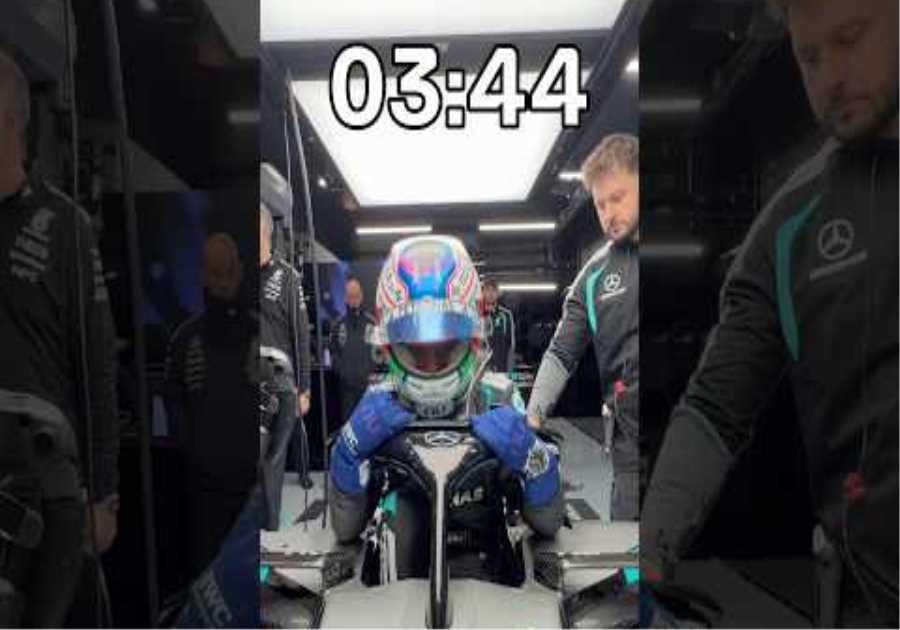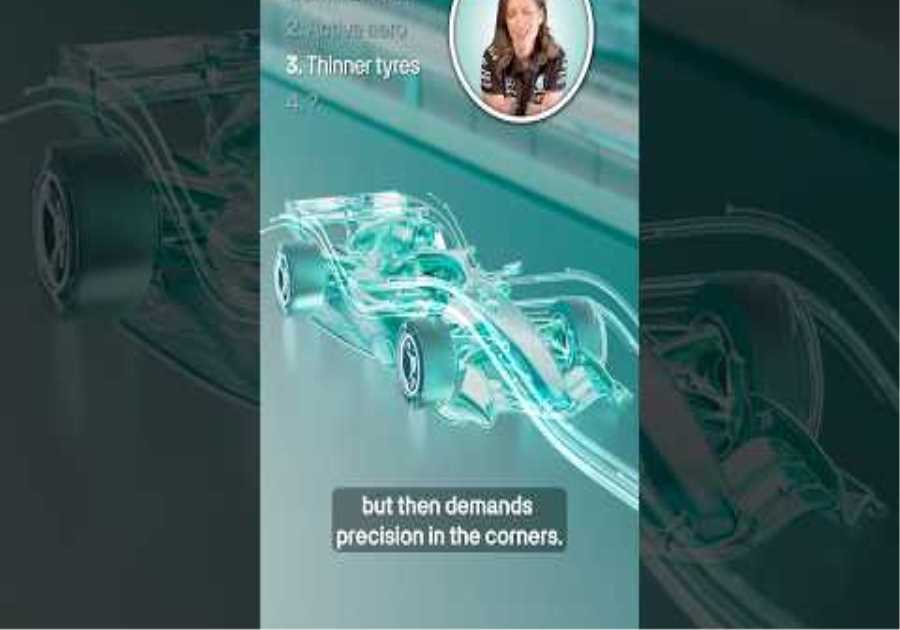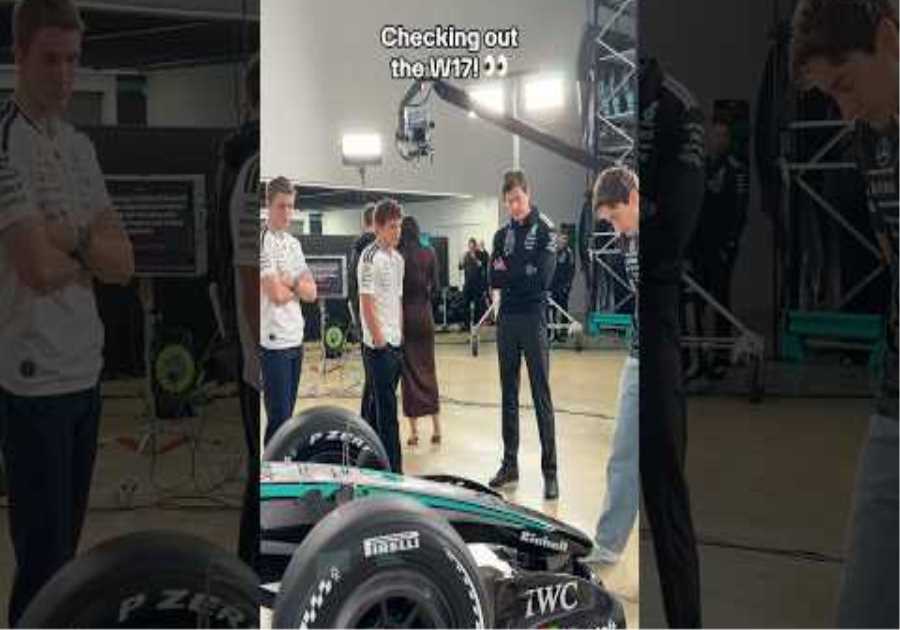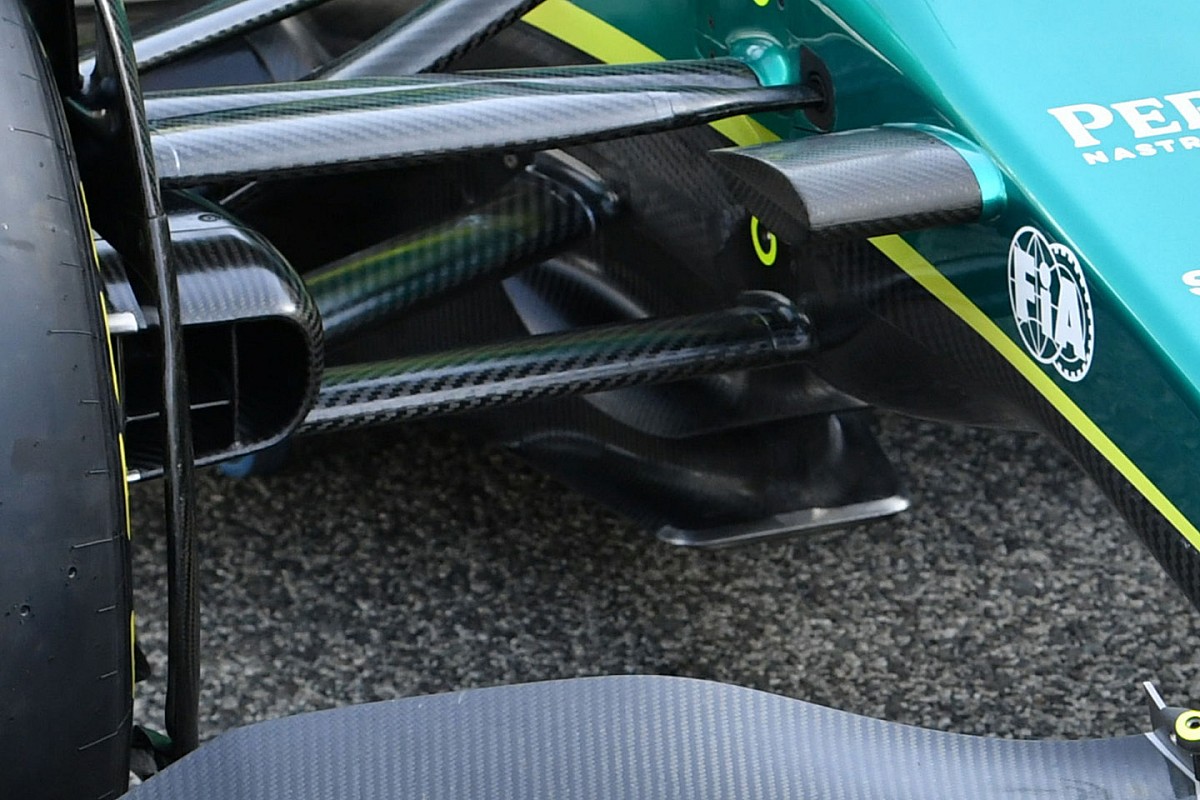
That has been the case in 2022 too, with an original design idea that emerged on the Aston Martin AMR22 now having been copied by Red Bull after rival Ferrari had also taken note ahead of its launch.
Aston Martin AMR22 splitter detail at launch
Photo by: Aston Martin Racing
At the reveal of the new Aston Martin in February, it featured a keel wing under the nose, which makes use of design freedoms in this area of the car to add a touch more downforce.
The idea also featured on the Ferrari F1-75 at its launch and, while some presumed the Italian team had also come up with the idea from scratch, that may not have been the actual case.
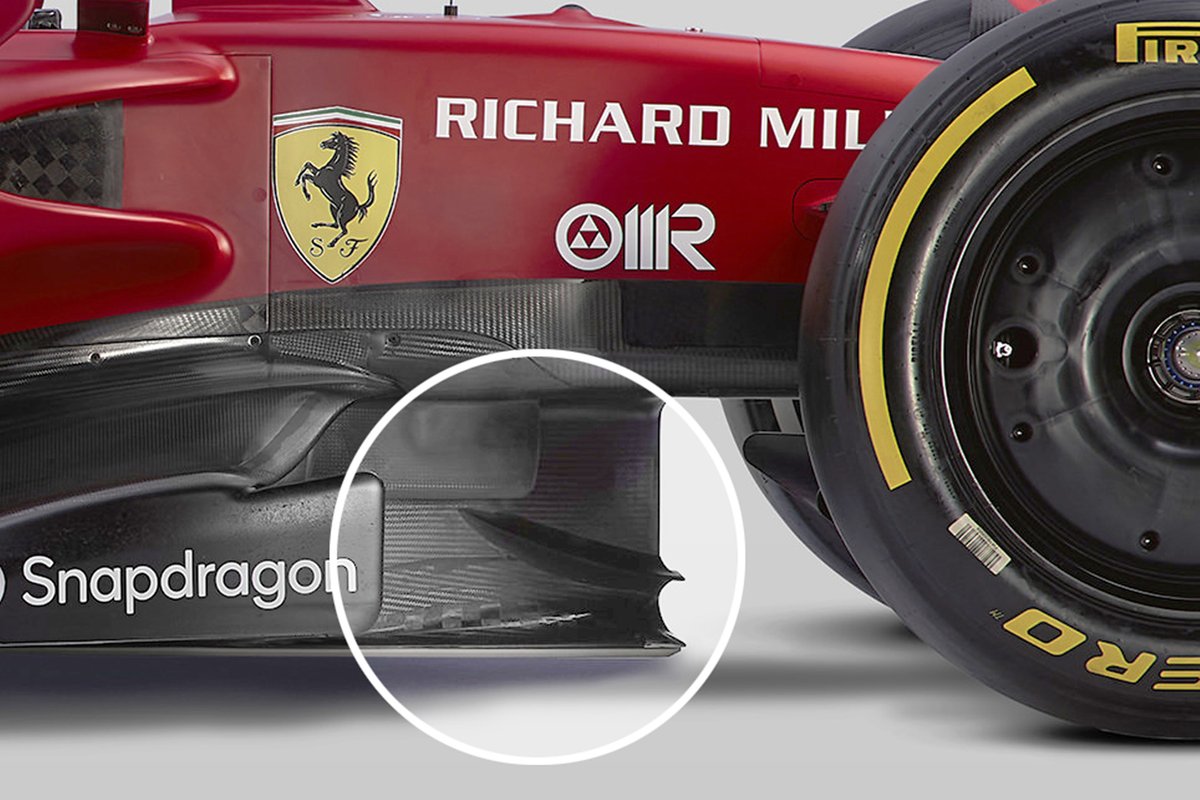
Ferrari splitter detail at the F1-75 launch
Photo by: Ferrari
Team principal Mattia Binotto suggested that the Maranello outfit had instead responded very quickly from a close look at what others had been up to.
“On the F1-75, there is already a detail from a car that was presented in the past few days,” he said. “And especially in this first phase we will all be watching each other very closely.”
While design convergence in F1 is not a new thing, with just seven days between the launch of the Aston Martin and the Ferrari, it was an impressive feat for the Scuderia, given it had to put the solution through the rigors of CFD and the wind tunnel before manufacturing a physical version.
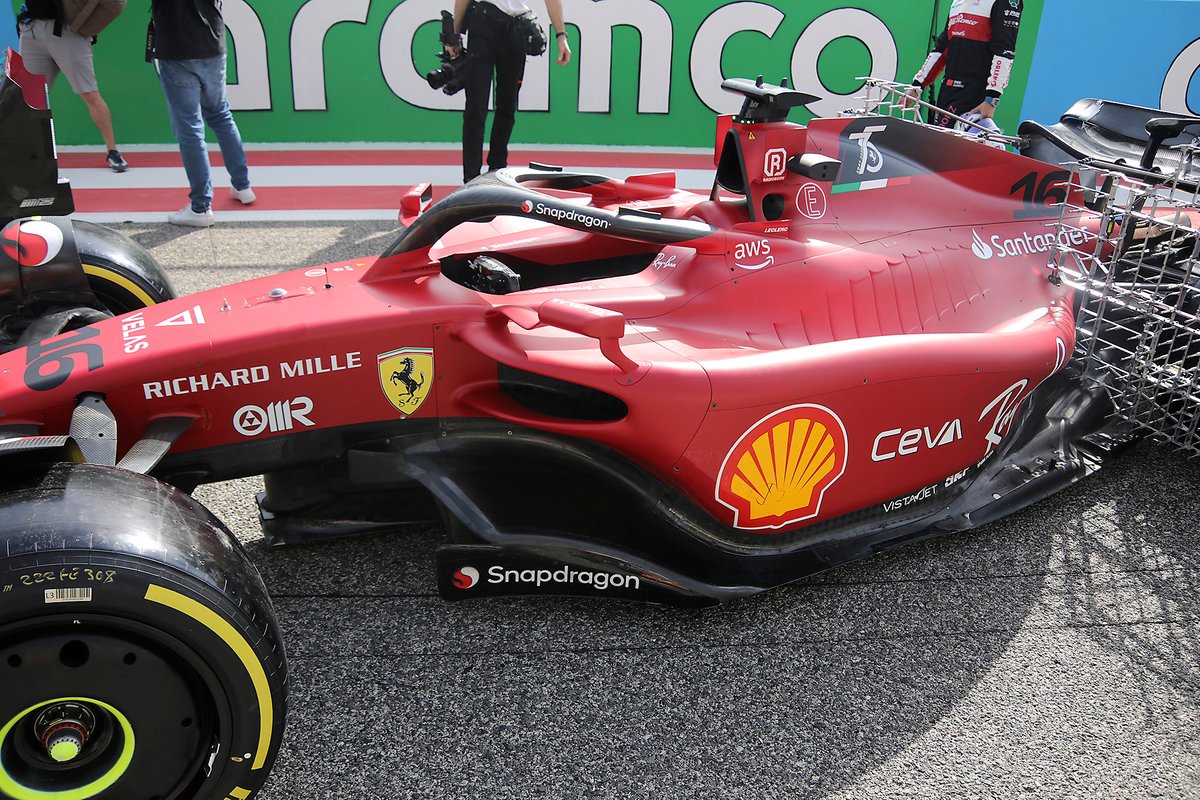
Ferrari F1-75 side detail
Photo by: Giorgio Piola
Red Bull obviously took a little longer to examine the merits of such a design but, with a constantly evolving workload, teams need to find ways to insert new ideas into an already cramped schedule, which in the early part of the season can be more about Optimization than it is about total revolution.
Internally the keel is home to a plethora of different components, with teams opting to house some of their electronics here, rather than in the sidepods.
In Red Bull’s case, this has resulted in the installation of a tall, narrow inlet to help keep these components cool.
Red Bull, like many of the other teams on the grid, has a sprung element housed between the chassis and the bib, which obviously limits the shape of the surface.
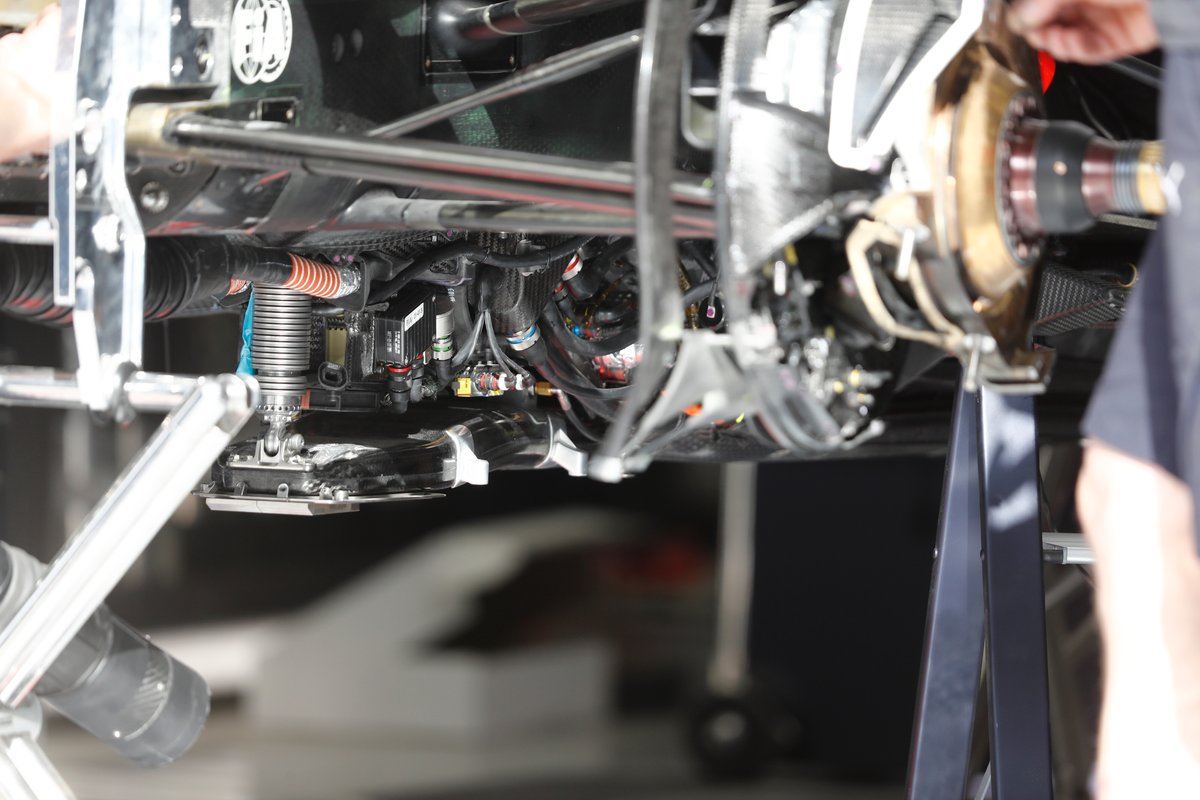
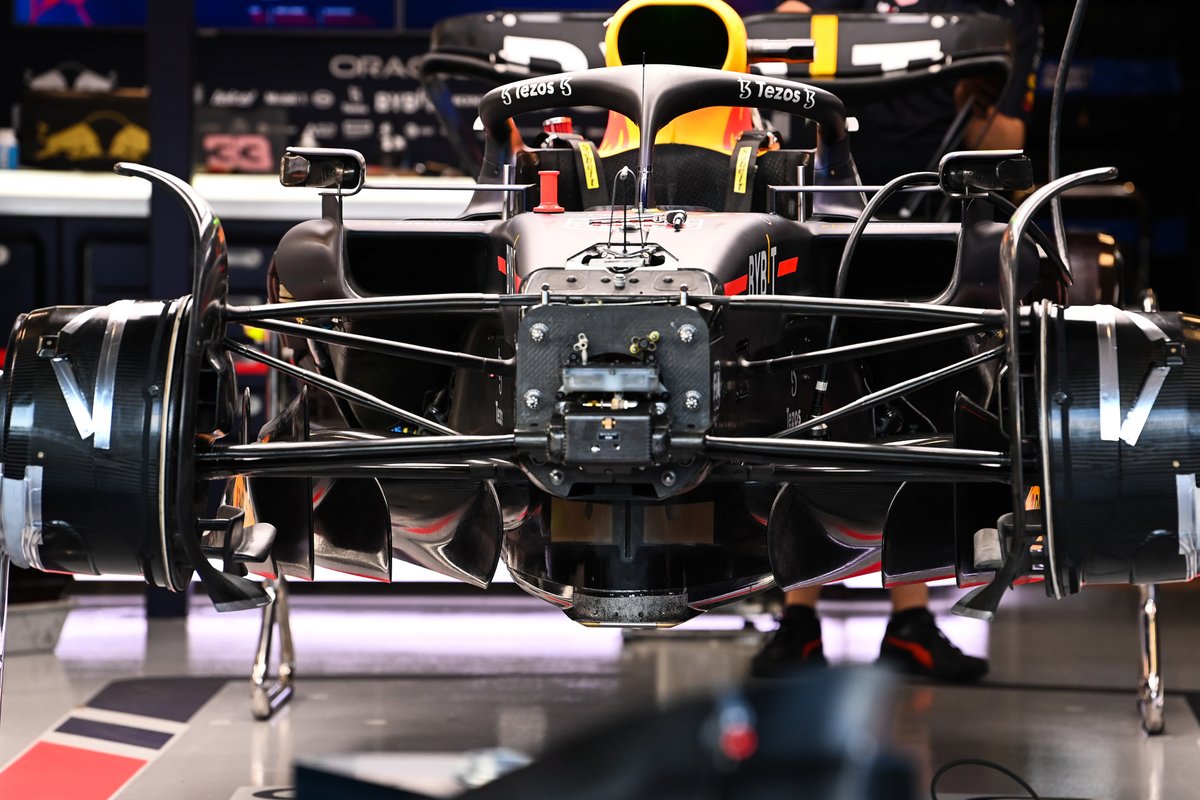
Nonetheless, this hasn’t stopped the team from narrowing the main body of the keel facade to facilitate the inclusion of the wing elements on either side.
This is more likely the reason as to why it took longer for Red Bull to assimilate the design, given it wasn’t as simple as adding the winglets to the side of its pre-existing design.
The winglets will alter the local pressure distribution and flow behavior, with the most obvious takeaway being that they’ll shed a pair of vortices that can either power up or quieten down those shed by the bib below depending on how the team want them to behave . It is something that’s especially important when we consider the proximity to the floor tunnels.
Alpine also introduced a keel wing in Imola too, as Fernando Alonso was the recipient of a number of new parts for the grand prix weekend.
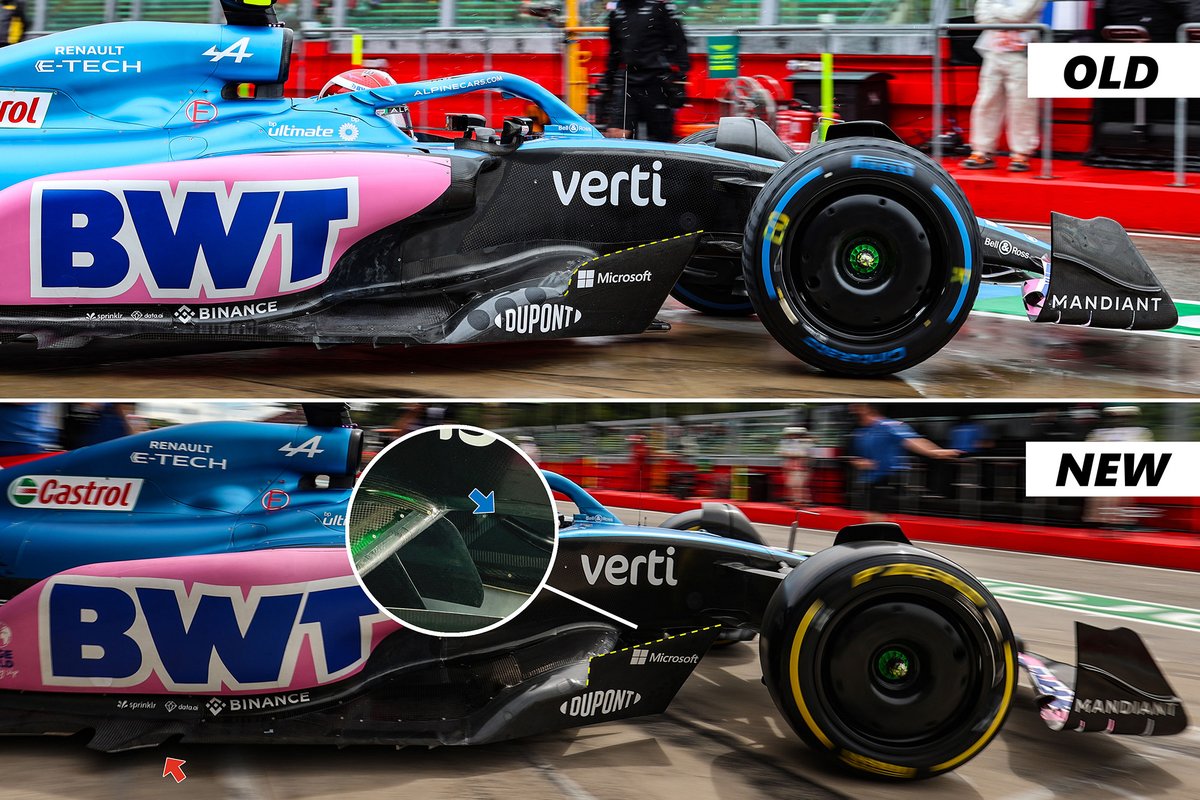
Alpine A522 floor comparison
Did you miss our previous article...
https://formulaone.news/aston-martin/it-can-achieve-a-good-price


